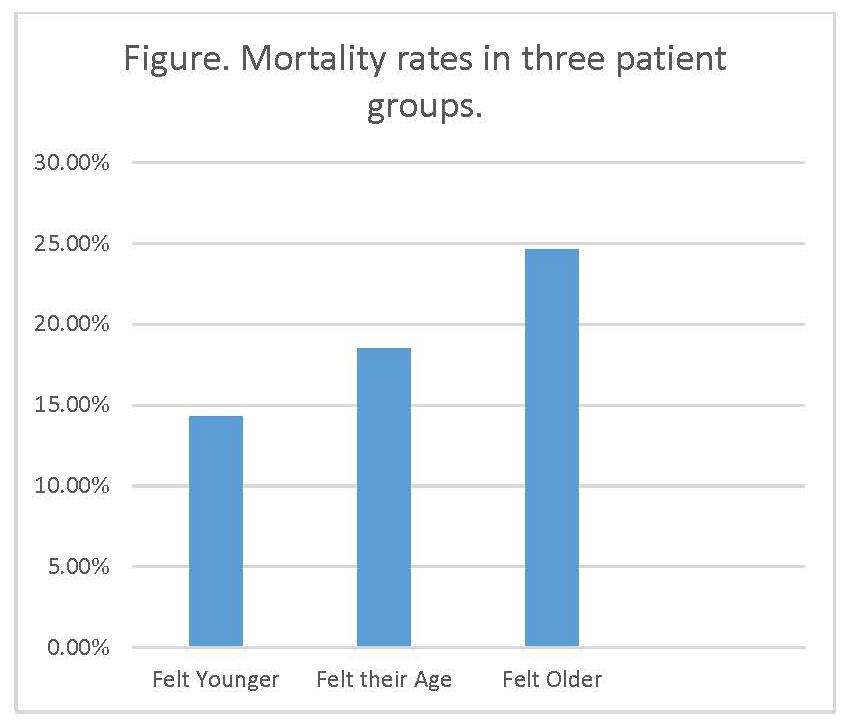- Self-perception of youth was linked to lower all-cause mortality rates among older adults.
- You can you teach your patients to feel younger and live longer.
- Teach your patients the value of youthful activities – sports, work, travel, socializing – and increase both their health span and their lifespan.
An article published recently in JAMA Internal Medicine found that a self-perception of youth was associated lower mortality rates among older adults. Conversely, study participants who reported that they felt older than their chronological age had higher death rates during the study period.
According to the authors of the JAMA Internal Medicine review study, observed that “Self-perceived age can reflect assessments of health, physical limitation and well-being in later life, and many older people feel younger than their actual age.” The authors of the review were Isla Rippon, MSc, and Andrew Steptoe, DSc, of the University College, London.
During the average follow-up of about 99 months, mortality rates were 14.3% in adults who felt younger, 18.5% in those who felt close to their actual age, and 24.6% in adults who felt older. (See Figure.)

For instance, besides the health measures that the researchers used in the study, they suggested that the following patient actions may contribute to feeling youthful:
- Maintaining a healthy weight
- Adhering to medical advice
- Engaging in an exercise program that begins with walking.
- Purchase a pedometer and aim to walk 10,000 steps per day.
- Tending toward a more plant-based or Mediterranean diet.
- Maintaining proper hydration.
- Not siting for long periods of time.
- Going to a workout center. (Often just getting there is exercise enough for an older person.)
- Changing the patient’s wardrobe to include more youthful, “sporty” attire.
- Volunteering to spend more time with younger people.
- Volunteering to spend time with older people.
- Engaging in a healthy sex life with a dedicated partner.
The researchers also surmised greater resilience, sense of mastery, and will to live among those who feel younger than their chronologic age.
“Self-perceived age has the potential to change, so interventions may be possible. Individuals who feel older than their actual age could be targeted with health messages promoting positive health behaviors and attitudes toward aging,” the authors concluded.
Based on this study, any number of things you can do to help your patients feel younger will be good for their overall health and will, statistically, reduce their all-cause mortality. This could be the Big Placebo Effect.
